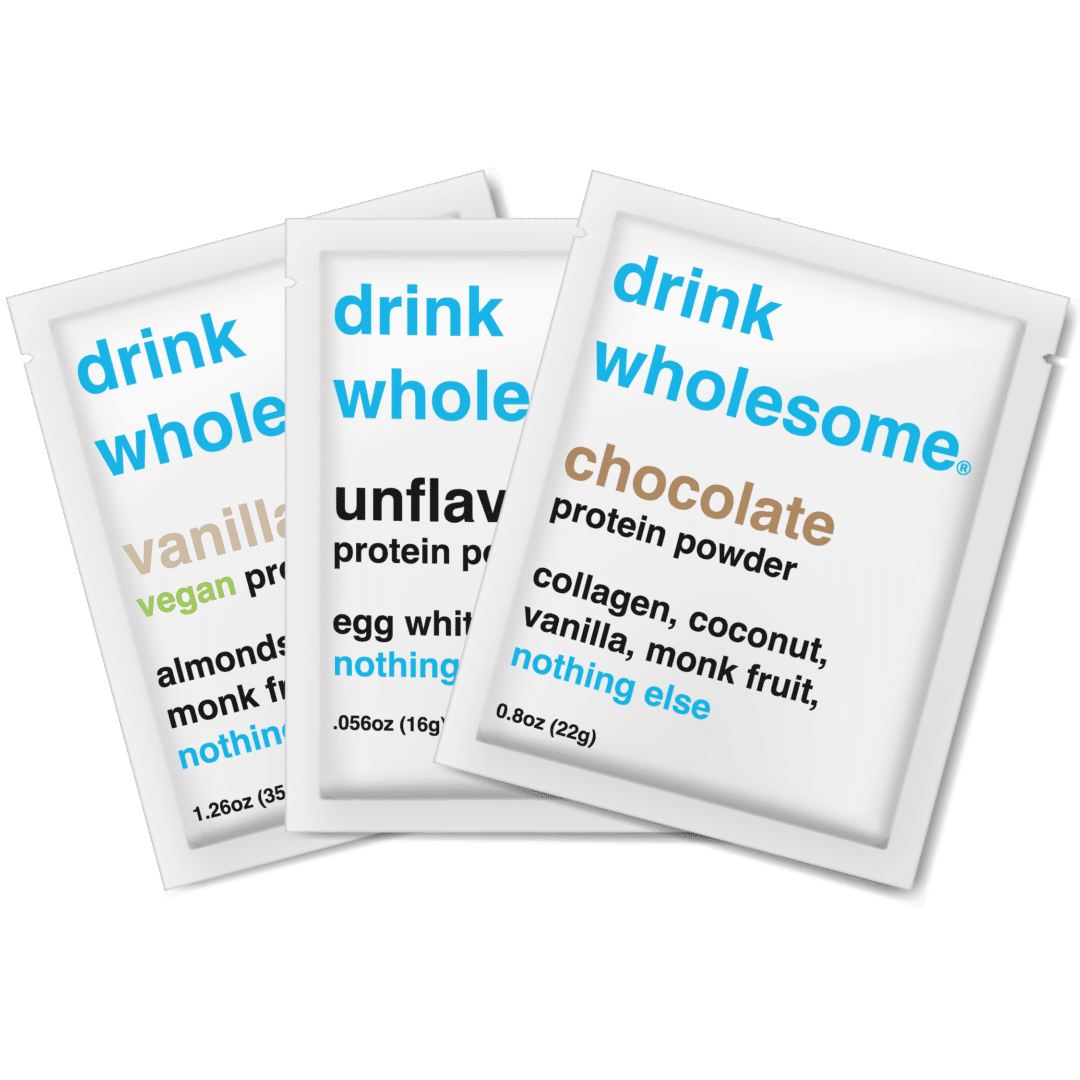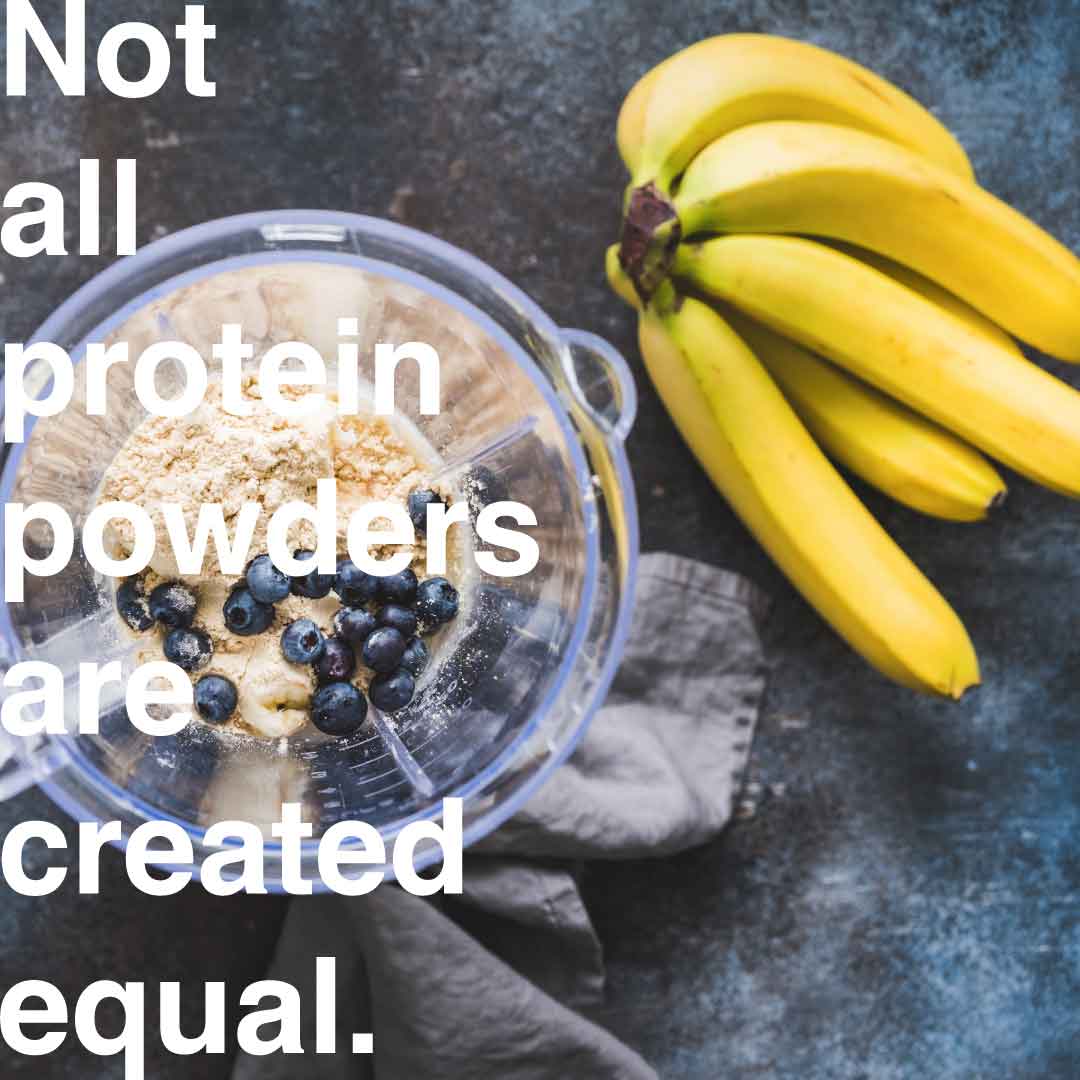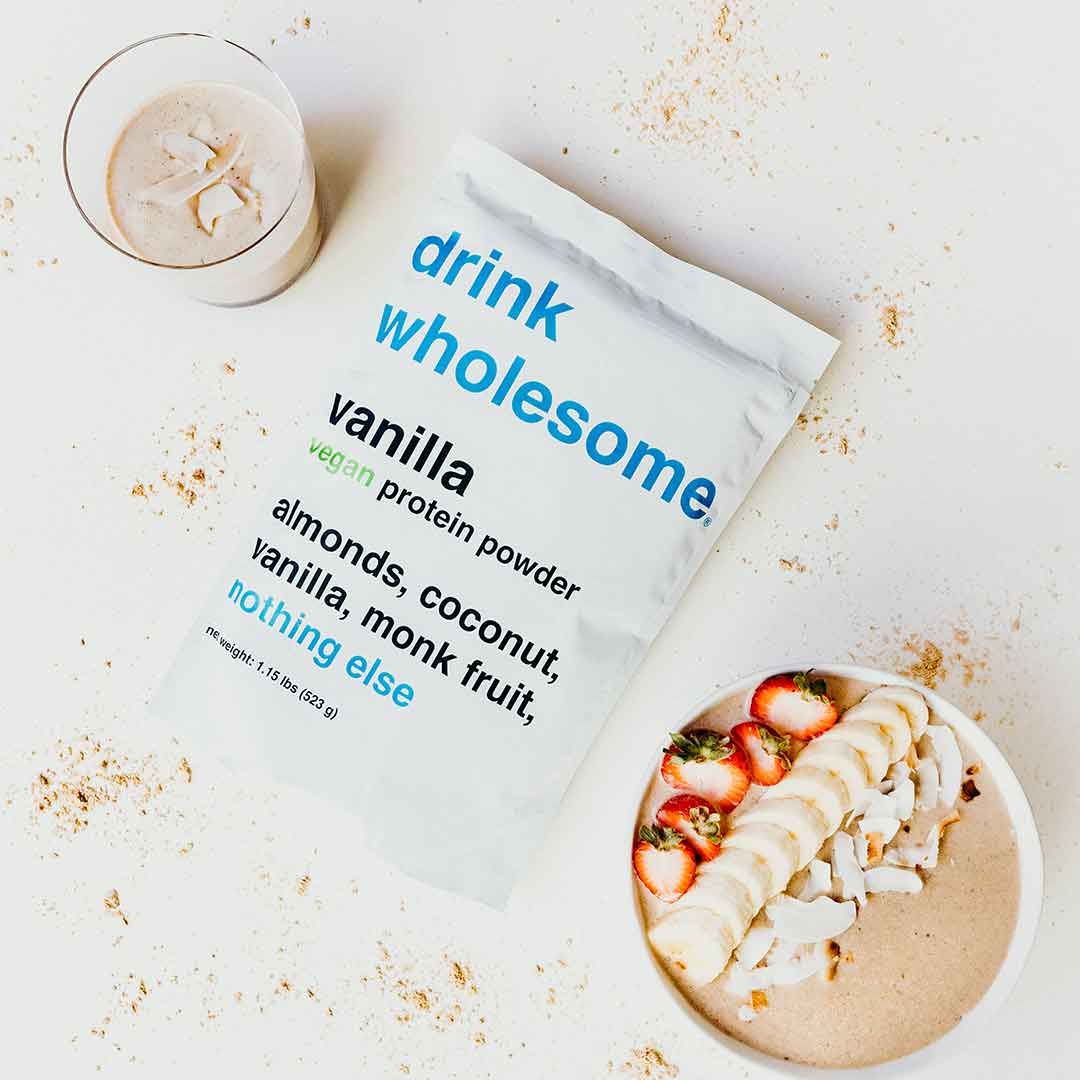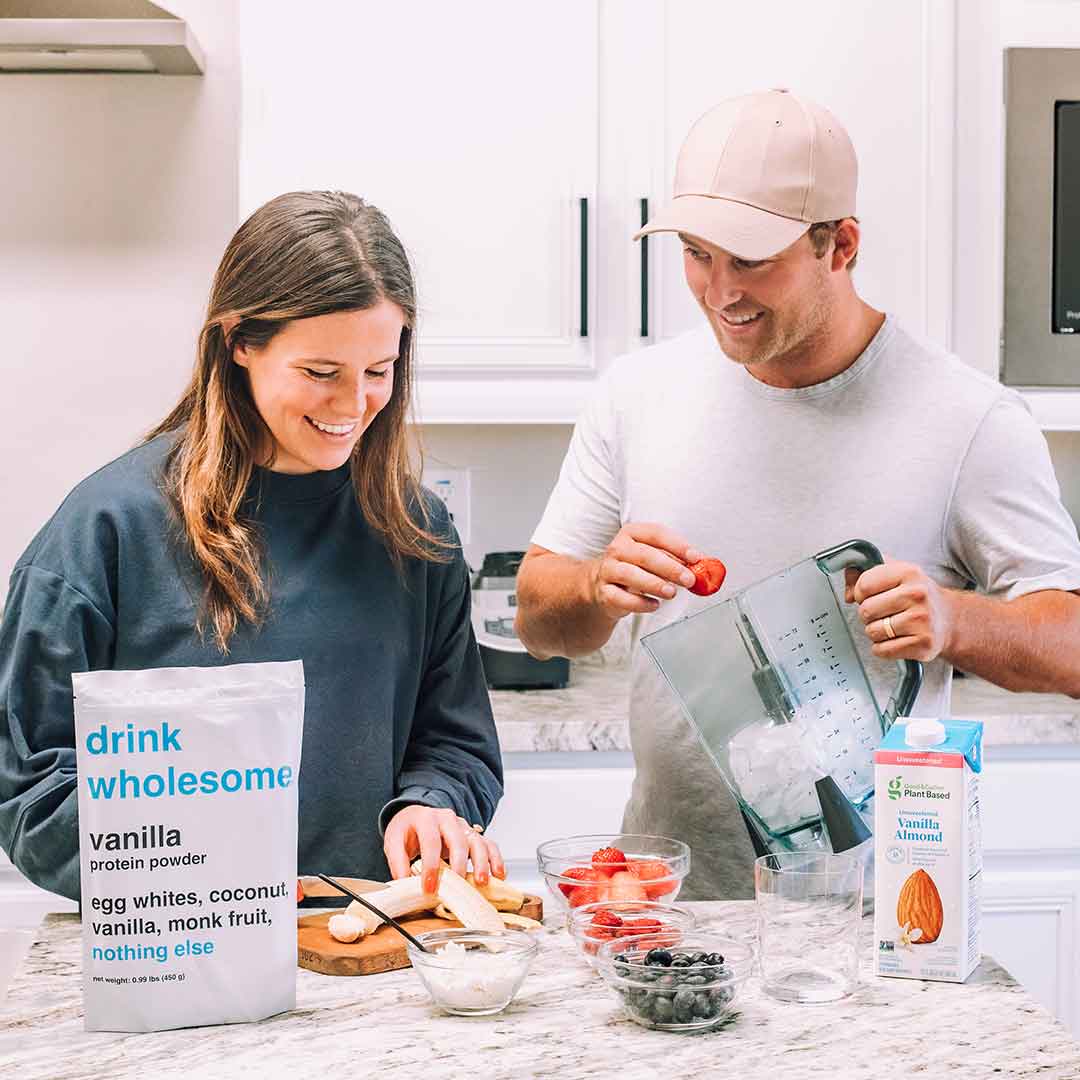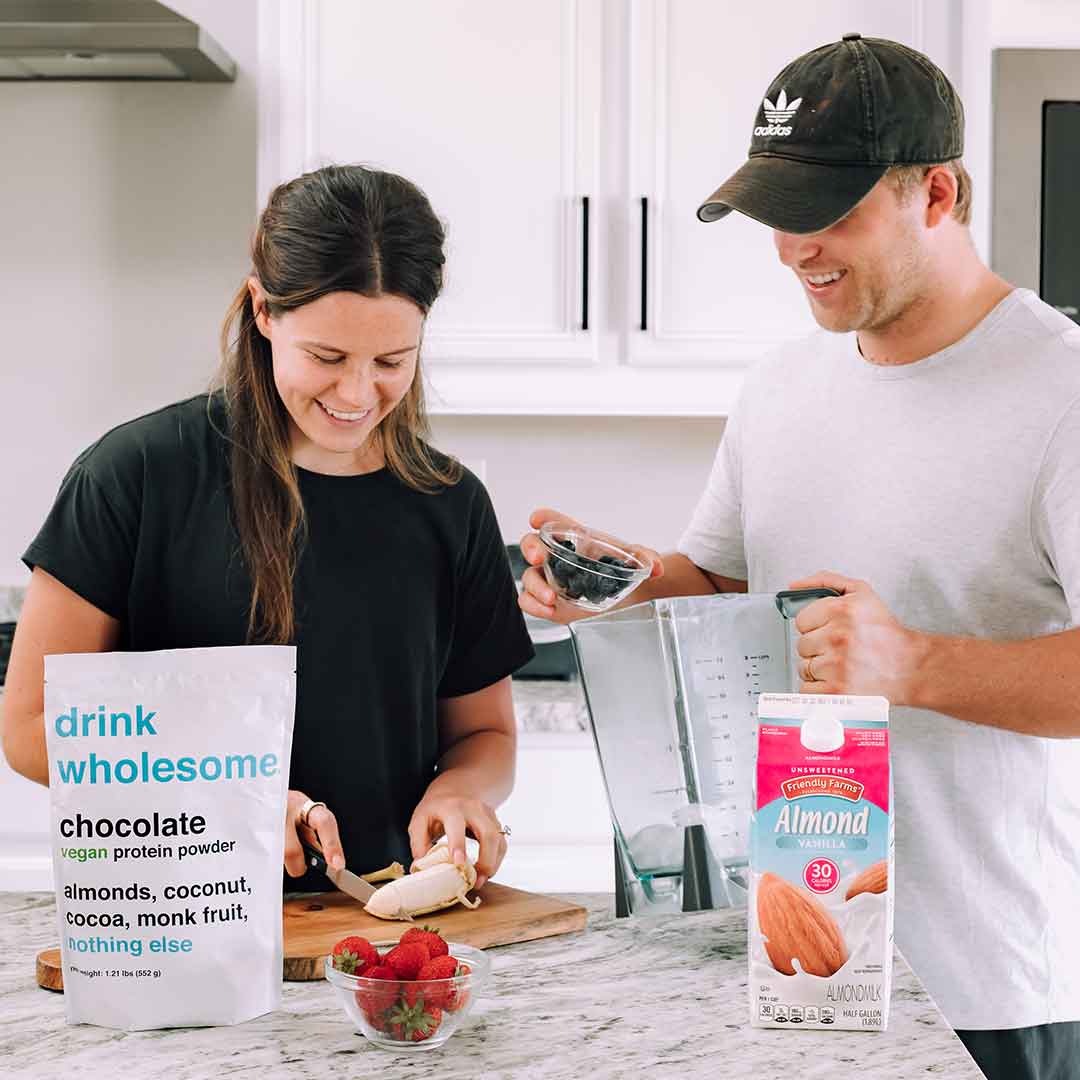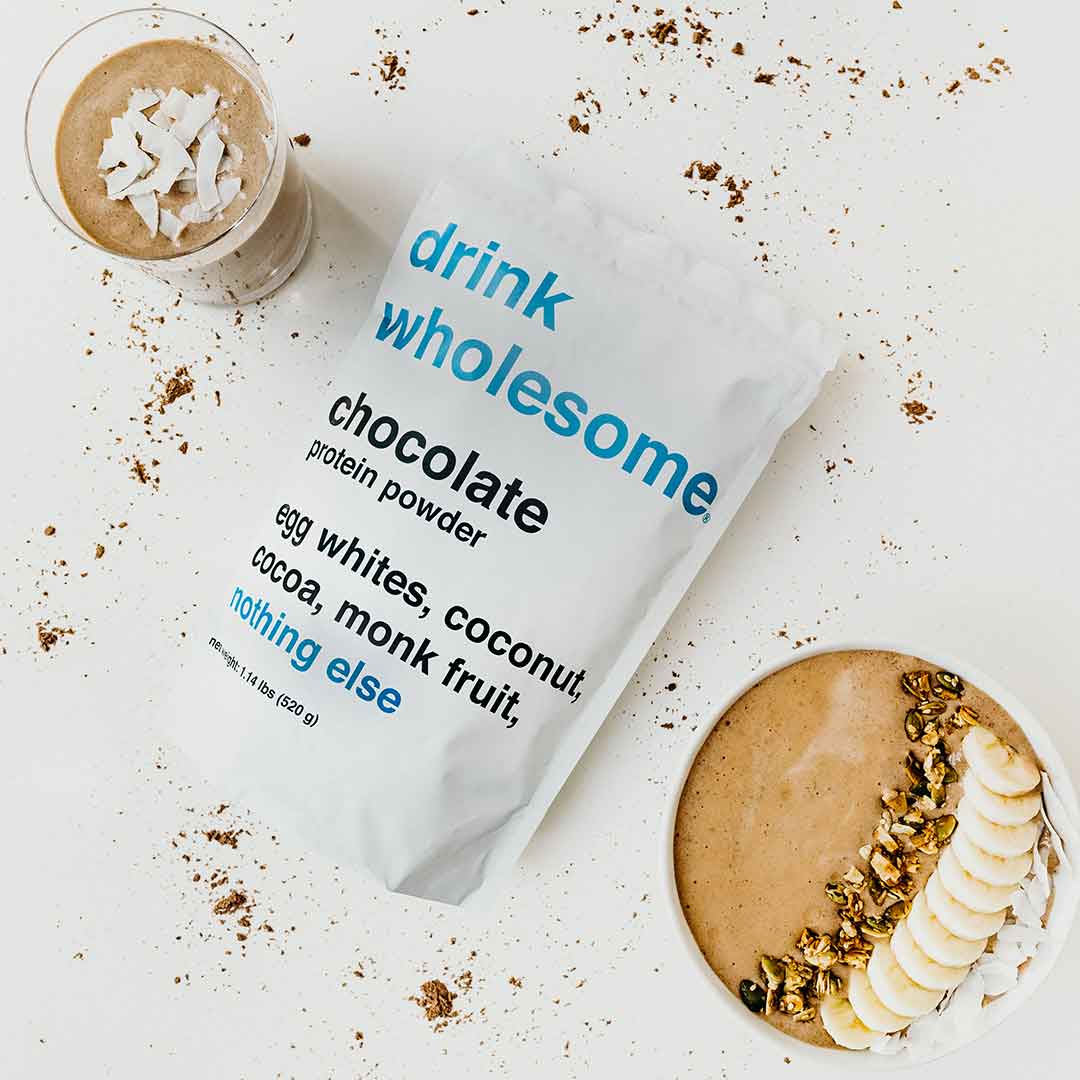What is the best high calorie protein powder?
There are two types of protein shakes: ready-to-drink (store-bought) protein shakes, and protein shakes made with protein powder. In order to make high calorie protein shakes with protein powder, you have to mix the powder with milk or water. This requires a blender or a shaker bottle, and a little extra time and effort. Some people prefer ready-to-drink protein shakes because they are more convenient, but if they knew what they were drinking, they would probably vomit.
Ready-to-drink protein shakes are full of emulsifiers, stabilizers, thickeners, sweeteners, and flavors. Ingredients like these improve characteristics like taste, texture, and shelf stability, but can cause uncomfortable side effects and long-term gut damage (more about this soon). This is why I recommend that you make your own high calorie protein shakes with protein powder. That said, not all protein powders are created equal, and many contain the same additives found in ready-to-drink protein shakes!
First of all, our egg white and almond-based protein powders are high calorie. Our peanut butter protein powder, for instance, has 20 grams of protein and 170 calories per serving. For reference, Orgain and Vega, the two of the most popular brands of protein powder on Amazon, have only 150 calories per serving. We also make meal replacement powders with 30 grams of protein and 250 calories per serving. Adding a meal replacement powder to your diet is another great way to consume more calories.
Our protein powders contain more calories than the average protein powder because we use real food ingredients, not protein isolates. Protein isolates are listed on the ingredient list as “pea protein” and “whey protein” as opposed to “peas” and “whey.” Unlike real foods, they have been stripped of the fats, carbohydrates, and therefore most of the calories. They are great if you want protein and nothing else, but not so great if you want lots of calories. Instead of protein concentrates or isolates, we use ingredients like egg whites, almonds, and coconut.
What makes our protein powders the best high calorie protein powders is the fact that they are additive-free. Most protein powders, on the other hand, are full of food additives. Additives are used to improve characteristics like solubility and shelf life. They are also used to mask the chalkiness of protein isolates, which, again, have been stripped of everything but the protein. Additives may make protein isolates more palatable, but they are bad news for your gut health.
Again. one of the reasons why we make the best high calorie protein powder is that we do not use food additives. Most protein powders, on the other hand, are full of food additives. Although not necessarily bad for you in small quantities, additives can add up quickly (especially if you drink a protein shake every day) and cause gastrointestinal (GI) side effects like bloating, constipation, diarrhea, gas, and stomach pain. This is because food additives are hard to digest, and sit in your gut for longer than food should, which gives your gut bacteria more time to eat. As they eat, these bacteria produce gas, which causes bloating and stomach pain. Gas also slows colonic transit (the amount of time it takes food to travel through the colon), and can lead to constipation. In the long term, food additives can disrupt regulatory pathways in the intestine, which can result in the development of inflammatory bowel disease (IBD) and systemic inflammatory disorders.


